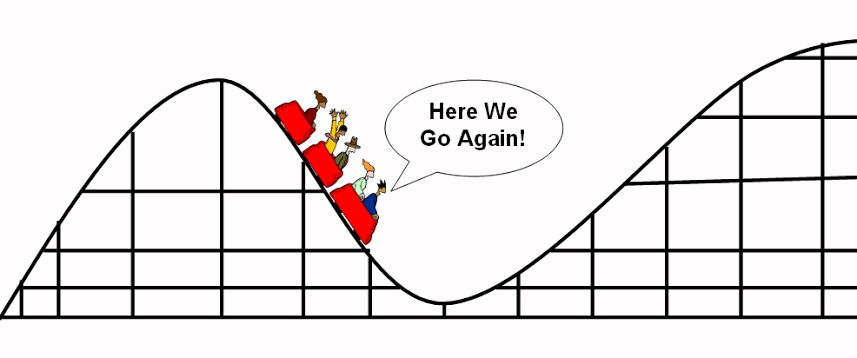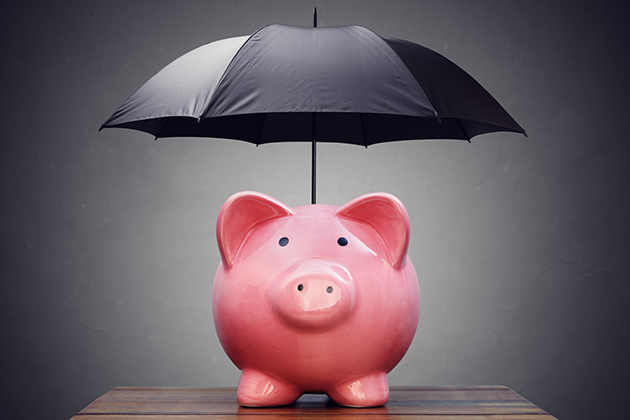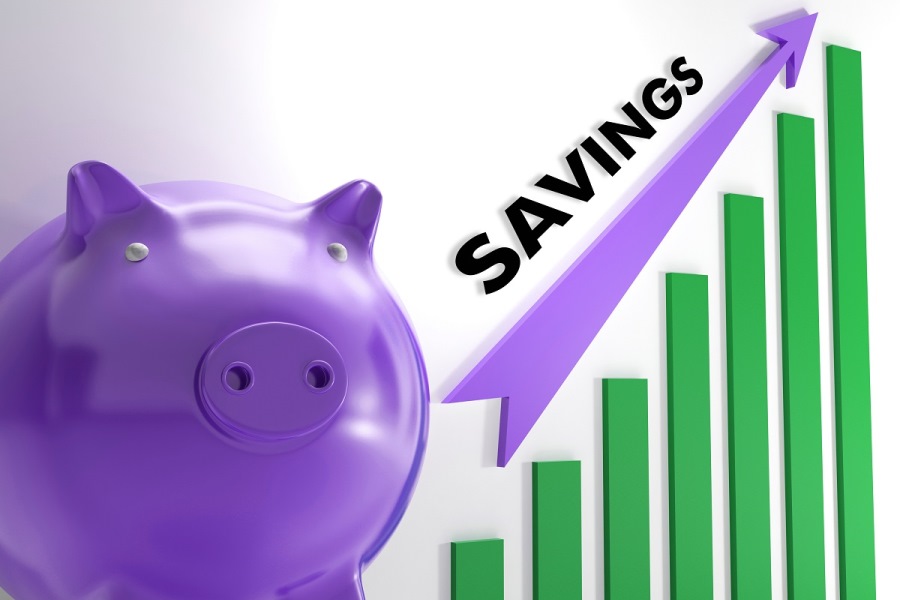
Businesses have ups and downs. I’ve witnessed this many times over. From my personal upbringing of watching my parents with their businesses that went through radical ups and downs to starting my own business which has also gone through its own fair share of pendulum swings. Plus, at my firm, my focus is on small business, so I’ve seen many companies go through extreme ups and downs with their operations too. With all this first-hand experience, I feel that I have a bit of knowledge on this subject.
What I know, and this is something that I’ve seen time and time again, is that most small business owners never pay themselves first. And I'm not referring to paying employees first because obviously, that needs to be done. What I am talking about is saving for the rainy days in the future.
 Witnessing my own parents’ struggle through huge economical downturns and then shift to a thriving business during the economical upturns, I knew that I wanted it to be different for myself and my family. I knew that if I was going to experience downturns, I needed to have a rainy-day fund too. So that's exactly what I did. I made sure that I was always paying myself. It started with a small savings account and a small corporate life insurance policy (which is also a savings tool). As my business grew, as the upturns continued, both savings eventually grew too.
Witnessing my own parents’ struggle through huge economical downturns and then shift to a thriving business during the economical upturns, I knew that I wanted it to be different for myself and my family. I knew that if I was going to experience downturns, I needed to have a rainy-day fund too. So that's exactly what I did. I made sure that I was always paying myself. It started with a small savings account and a small corporate life insurance policy (which is also a savings tool). As my business grew, as the upturns continued, both savings eventually grew too.
It might look like I’ve always been on top of the world, but the truth is that I started my business one client at a time, and I struggled just like every other business out there. Overworking just to ensure there was food on the table for my family and a roof over our heads. I never take that success for granted because, in business, it doesn’t happen for everyone. I am very grateful and have been humbled again and again by the continued success of my business.
But again, going back to my experience of growing up in a business with extreme ups and downs plus watching many clients experience similar swings in business, I knew that I had to do it differently because when those downs come, you need to have money or access to money.
I saw my parents go through many recessions and they always survived because my dad was smart and he knew how to recognize the signs. He knew when to pull back and he knew when to go full steam ahead.
The savings avenues that I chose were strategic. The life insurance policies I put in place were such that if I needed money, I could borrow against it, and the bank account savings are kept liquid so they could be used when needed and accessed quickly.
 I know what you’re thinking “but I don’t have any extra”. And that’s why I’m saying you need to put it away first. Whether it’s a savings account, an RRSP, a TFSA, a life insurance policy or some other form of savings, you need to do this first so then you know what you have left to spend.
I know what you’re thinking “but I don’t have any extra”. And that’s why I’m saying you need to put it away first. Whether it’s a savings account, an RRSP, a TFSA, a life insurance policy or some other form of savings, you need to do this first so then you know what you have left to spend.
When I first started saving, it was $25 a month and slowly this amount increased. A goal for me has always been to maintain six months of cash for both my business and personal spending.
Some would say the rainy days are here again and while I am seeing it with some businesses, I can see that others are doing well – but either way – if you don’t have a rainy-day fund, you need to start one now.
It’s not a matter of IF but rather when. The rainy days will come. We all saw that with COVID and are seeing it now with the rise of inflation and interest rates. Even if it’s just $25 a month, don't delay, start your rainy-day fund NOW.
***This blog is for information only and not to be used as tax advice or planning without first seeking professional advice. Information is subject to change without notice.
